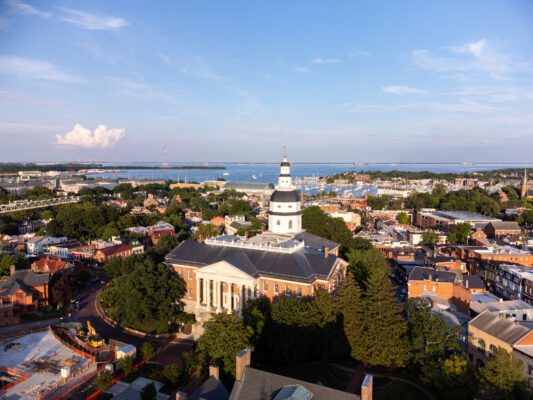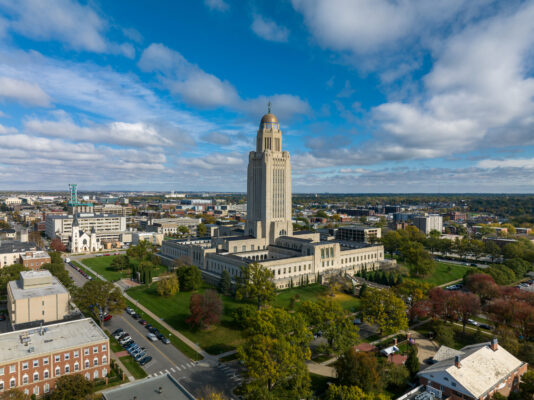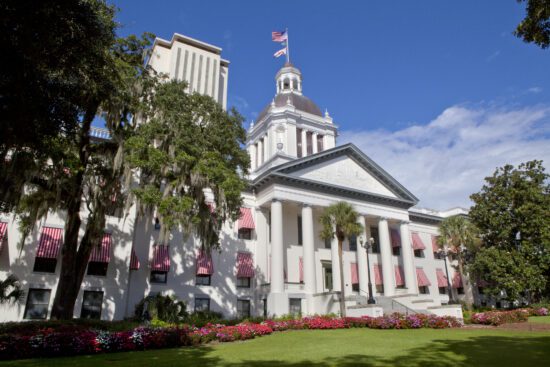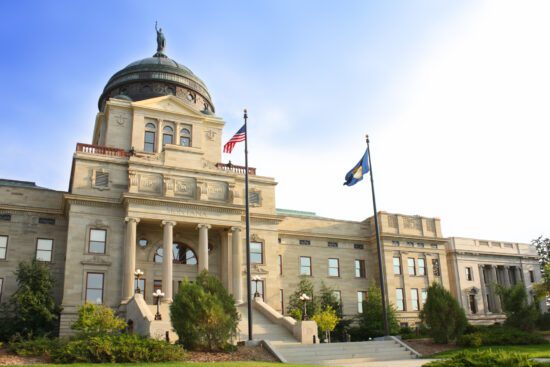News burst onto the scene in November 2021 about an out-of-the-box form of care in the pro-life movement: a maternity ranch.1https://www.washingtonpost.com/nation/2021/11/16/evangelical-women-texas-abortion/ In 2020, God placed a dream in Aubrey Schlackman’s heart, and from that point on, her family has been dreaming and working toward creating a place in rural East Texas where single, pregnant mothers who already have children could have supportive community, gospel discipleship, and farm therapy.
Today, Blue Haven Ranch is seeking to fill a gap for vulnerable mothers and children in a post-Roe world and in a state that has a near-total abortion ban.2https://www.bluehavenranch.org/ The Schlackmans’ ministry is an example of how Christians can get creative in standing for and support the right to life in their communities. Below, Schlackman shares about how this dream become a reality and how other Christians can get involved.
Elizabeth Bristow: What is the story behind the origin of Blue Haven Ranch? And why a ranch?
Aubrey Schlackman: My husband and I have been married for 12 years, and for many of those years we’ve had a big heart for single, pregnant moms and a love for hospitality. For years we thought about using extra space within our own home to partner with single, pregnant moms, but it never really worked out. I was sick for a few years, but coming into 2020, I was healthy and prayed to the Lord about how to re-engage with life.
At the beginning of February 2020, my sons and I were driving home from the grocery store in our rural community when I passed a ranch for sale. In that moment, I felt the Lord give me a vision to start a maternity ranch.
As I sat on the idea that day, I realized it combined into a single focus things that my husband and I had a heart for. As the world shut down in 2020, we worked with nonprofit consultants to build out our plan of growth. We opened our doors in April 2021 and had four families at that time in our home. We provided assistance with baby showers, paid for two months of maternity leave for each mom, gave them a support group, and cooked meals together. By May 2021, we had enough donations from supporters to put our first mom into an apartment and pay for her housing. By September 2021, we were paying the housing and utilities for all four moms.
When the Texas Heartbeat Act (S.B. 8) was passed, outlawing abortion once a fetal heartbeat is detected, a waitlist started for our program. A Washington Post reporter in Texas wrote a story about our work, and it ended up being on the front page of the paper. After that, our waitlist exploded, and we had increased donations.
In March 2022, we sold our home and moved to a four-acre farm in Krum, Texas. We fixed it up, and so far we have a horse, donkey, ponies, goats, chickens, and dogs. We also have a greenhouse we’re building so we can engage families in the farm therapy aspect of our program. Now, we have a contract on 124 acres of ranch land that a donor has agreed to buy for us. I’ve never been part of something that has moved this quickly. We’re just trying to keep up with the momentum that God has created in this.
The final phase of the maternity ranch will be building mother cottages. We want to house at least 20 families onsite at the maternity ranch. We’ll also have some staff homes, a community center, the barns, and the greenhouses. This will help facilitate the lifestyle of community and self-sustainability.
We also help mothers assess jobs and pick ones that are going to meet their needs. Our program runs to 18 months postpartum. We help them through the whole process of getting the career training and job placement they need. We want to help plant them wherever they’re going to be and get them connected to community.
EB: What would just an average day look like for a mom who is a part of your program right now?
AS: Currently, unless moms are on maternity leave, they are required to work a job full time and their children go to childcare. On Mondays, we gather for a time of Bible study and community, while the kids do a little class with volunteers. After our group time, we have a meal that the kitchen team prepares for us.
Throughout the week, the moms are required to check in with our program advisor, who helps keep them stay on track with their goals. They’re also required to go to counseling a couple of times a month. Once the farm therapy starts, I hope to have each family come out a few times a month with volunteers for in-depth mentoring time.
EB: What role does the church play in meeting this need currently?
AS: If we say we are truly pro-life, we should put our time and money toward that belief. We often celebrate the new life of a baby, but we also need to help care for mothers postpartum. That might mean starting a maternity home that allows longer postpartum care, or it might mean giving more resources to pregnancy resource centers that can be used after the baby is born.
Another area of need is childcare. Most moms don’t get paid maternity leave. Childcare is really expensive, and while moms can apply for government assistance, they may not know that it takes six to nine months to get approved. Even then, it’s limited to two years. We need the church to help moms get back on their feet after they’ve had their baby and help them pay for childcare until they can get more assistance.
EB: On average, what does it take to financially support a mother and her family per year?
AS: Here in the Dallas/Fort Worth area, apartments can run anywhere from $1,500 to $2,000 per month for a two-bedroom, two-bathroom apartment. When you add in utilities and childcare, depending on the number of children, that can be around $3,000 per month.
In our program, we have levels of support based on the mom’s situation. If they’re not working because they are going to school online or are in a job transition, then we usually pay for utilities, rent, and childcare. If they’re on maternity leave, we pay for everything—food, medical expenses, etc. We offer eight weeks of maternity leave, so that’s about $4,000 to $5,000 per month for each family.
EB: What are some specific needs that you have? And what are practical ways people can get involved with your ministry?
AS: Financially, we’re limited on how many families we can take at the ranch. So, if someone wants to make a direct impact, helping us pay for each family is important. We need approximately $18,000 in the bank for each mom to join our program.
In addition, we need volunteers.
However, if you live in another city, you can follow us on social media and sign up for our newsletter. These communications will make you aware of baby shower gift lists or random financial needs, such as helping a mom get a vehicle, etc.
EB: What is your ultimate goal for Blue Haven Ranch?
AS: We want to be a maternity ranch that supports moms through community, gospel discipleship, and farm therapy that teaches them regenerative farming. In all of this, we want to give them different tools that enable them to become self-sustainable in their own lives and then launch back out successfully [into the world] to be independent, healthy members of society and strong moms.
Aubrey Schlackman is the co-founder of Blue Haven Ranch.










